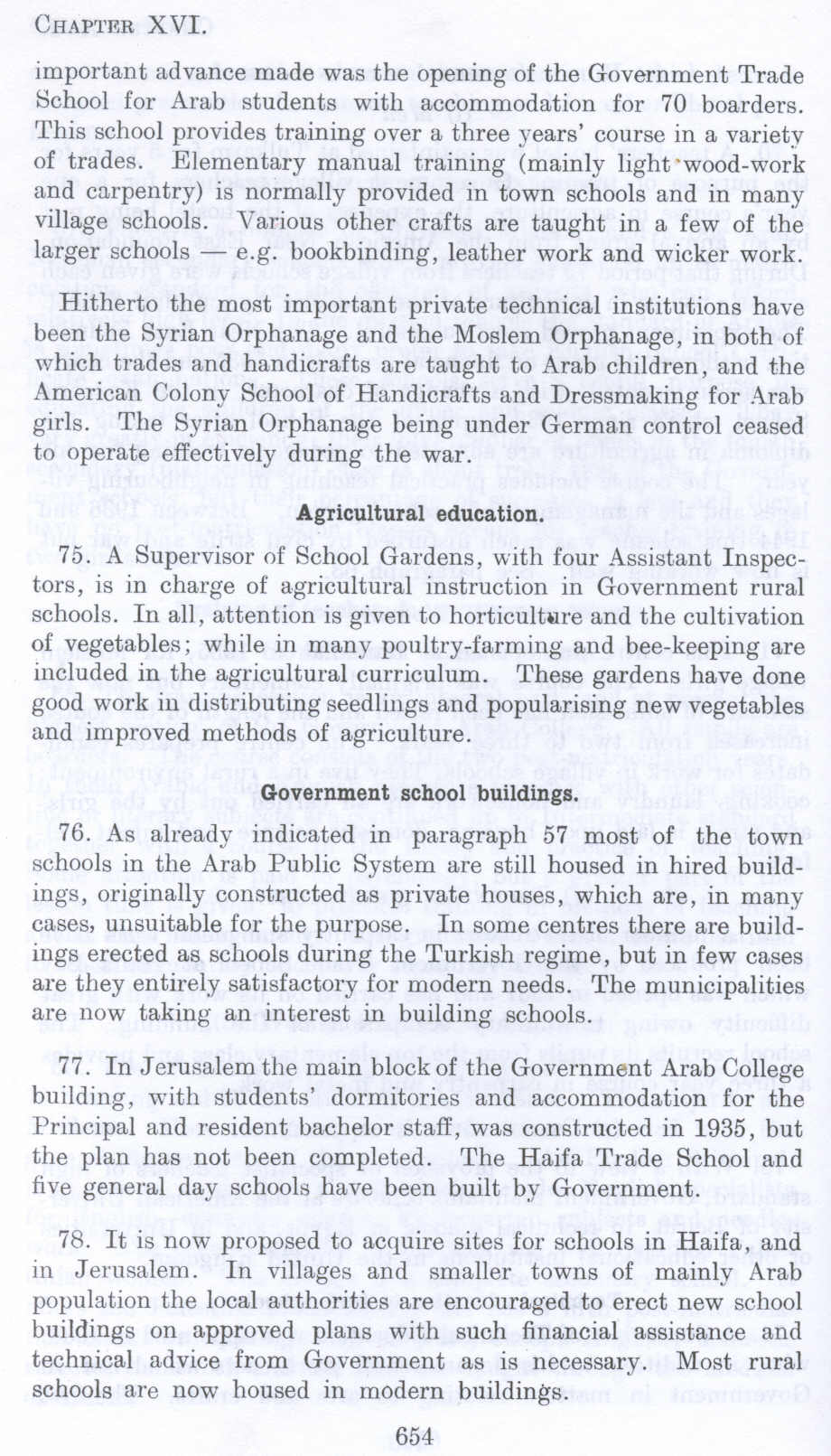| Prev | Next |  |
| Prev | Next |
| PalestineRemembered | About Us | Oral History | العربية | |
| Pictures | Zionist FAQs | Haavara | Maps | |
| Search |
| Camps |
| Districts |
| Acre |
| Baysan |
| Beersheba |
| Bethlehem |
| Gaza |
| Haifa |
| Hebron |
| Jaffa |
| Jericho |
| Jerusalem |
| Jinin |
| Nablus |
| Nazareth |
| Ramallah |
| al-Ramla |
| Safad |
| Tiberias |
| Tulkarm |
| Donate |
| Contact |
| Profile |
| Videos |
British Mandate: A Survey of Palestine: Volume II - Page 654 |
Disclaimer
The above documents, article, interviews, movies, podcasts, or stories reflects solely the research and opinions of its authors. PalestineRemembered.com makes its best effort to validate its contents.


Post Your Comment
*It should be NOTED that your email address won't be shared, and all communications between members will be routed via the website's mail server.
important advance made was the opening of the Government Trade School for Arab students with accommodation for 70 boarders. This school provides training over a three years' course in a variety of trades. Elementary manual training (mainly light •wood-work and carpentry) is normally provided in town schools and in many village schools. Various other crafts are taught in a few of the larger schools - e.g. bookbinding, leather work and wicker work.
Hitherto the most important private technical institutions have been the Syrian Orphanage and the Moslem Orphanage, in both of which trades and handicrafts are taught to Arab children, and the American Colony School of Handicrafts and Dressmaking for Arab girls. The Syrian Orphanage being under German control ceased to operate effectively during the war.
Agricultural education.
75. A Supervisor of School Gardens, with four Assistant Inspectors, is in charge of agricultural instruction in Government rural schools. In all, attention is given to horticulture and the cultivation of vegetables; while in many poultry-farming and bee-keeping are included in the agricultural curriculum. These gardens have done good work in distributing seedlings and popularising new vegetables and improved methods of agriculture.
Government school buildings.
76. As already indicated in paragraph 57 most of the town schools in the Arab Public System are still housed in hired buildings, originally constructed as private houses, which are, in many cases, unsuitable for the purpose. In some centres there are buildings erected as schools during the Turkish regime, but iu few cases are they entirely satisfactory for modern needs. The municipalities are now taking an interest in building schools.
77. In Jerusalem the main block of the Government Arab College building, with students' dormitories and accommodation for the Principal and resident bachelor staff, was constructed in 1935, but the plan has not been completed. The Haifa Trade School and five general day schools have been built by Government.
78. It is now proposed to acquire sites for schools in Haifa, and in Jerusalem. In villages and smaller towns of mainly Arab population the local authorities are encouraged to erect new school buildings on approved plans with such financial assistance and technical advice from Government as is necessary. Most rural schools are now housed in modern buildings.
654